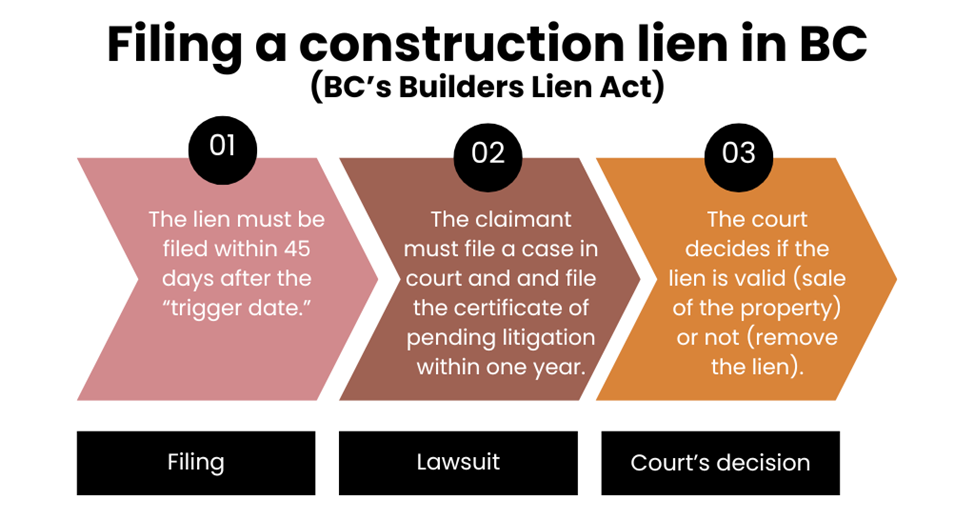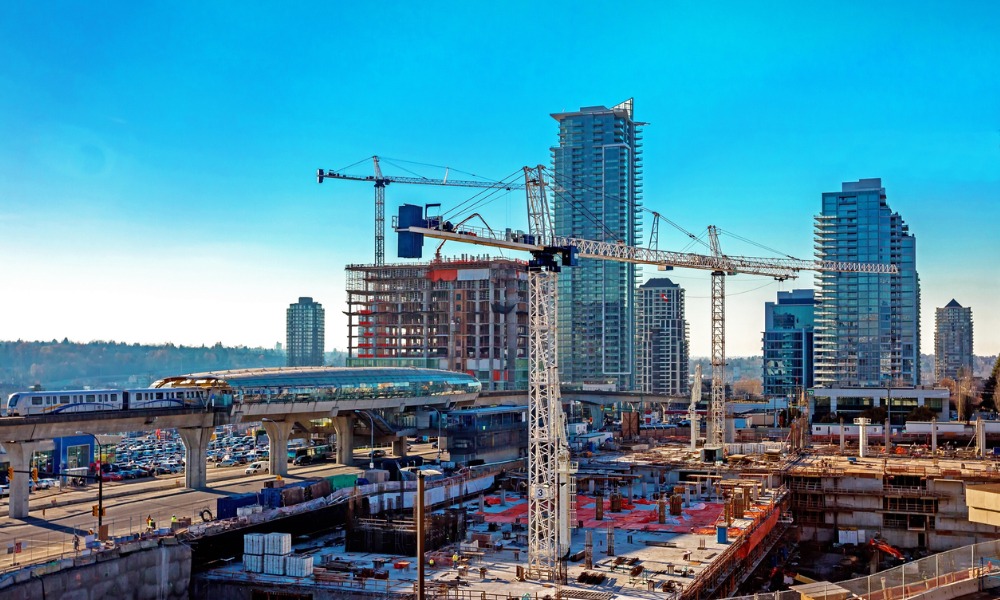Around 2019, most provinces in Canada amended their construction laws, and most of these amendments came into force just recently. Is there a similar Construction Lien Act in BC, and if there is, what are its rules?
What is the Construction Lien Act of BC?
The Construction Lien Act in other provinces is called the Builders Lien Act in British Columbia. It is BC’s provincial law that governs the relationship between parties in a construction contract or project, such as:
- the project owner
- the project’s builders, such as the contractor, subcontractor, sub-subcontractor, workers, and suppliers
In other provinces, similar laws are also named Construction Lien Act or Construction Act. These laws were also recently amended. Both owners and builders must be aware of these laws, especially to prevent and even address construction disputes among them.
As an introduction to the points to be discussed below, this video explains the Builders Lien Act:
For questions on the Builders Lien Act of BC, contact any of the Lexpert-ranked best construction lawyers in BC.
Important provisions of BC’s Builders Lien Act
Here are some of the important provisions of the Builders Lien Act (BLA) of BC:
- creation and discharge of construction liens in case of non-payment
- holdback requirement during the payment of builders
- creation of trust obligations and trust accounts with regards to payments
There are substantial differences between BC’s construction lien law and the other provinces’ counterpart laws. For instance, the Builders Lien Act of BC does not have a similar provision on prompt payment scheme, which was recently adopted by Ontario, Saskatchewan, and Alberta. However, in 2023, the Government of British Columbia declared that it’s looking at the possibility of amending its Builders Lien Act to include this prompt payment scheme.
How does a construction lien work under BC’s Builders Lien Act?
Under BC’s builders or construction lien law, a lien may be created over the subject construction project on whatever is not paid by the owner to its builders. It is a legally enforceable security in favour of the entitled builder. Any of the following can file a lien:
- builders: such as contractors, subcontractors, and workers who:
- performed or provided any work; or
- supplied materials; or
- did any combination of these transactions
- architects and engineers: those who were directly hired by the project owner
These are applied to what the law calls any “improvement” related to the land:

Exempt from construction liens
Under BC’s construction lien law, there are kinds of works or parties in a construction contract that are exempt from construction liens:
- those who rendered work or supplied materials to an architect, engineer, or material supplier cannot create a construction lien in their favour
- a construction lien cannot be created if the work is done on a federal government property or on a highway
- a property cannot be subjected to a construction lien if it has a notice of interest filed on it at the Land Titles Office
Creation of construction liens in BC
A construction lien can be created over:
- the owner's interest in the improvement; or
- the improvement itself; or
- land where the improvement is located; or
- materials delivered to, or placed, on the improved land
Here are steps to file a construction lien in BC:

Before filing a construction lien, it must be determined that the amount owed to the claimant or builder is above $200. Otherwise, a construction lien cannot be filed. A trigger date under the law refers to any of the following:
- when the certificate of completion is signed; or
- the completion or abandonment of the head contract or the improvement (if there is no certificate of completion)
What is the holdback requirement under BC’s Builders Lien Act?
BC’s Builders Lien Act requires a 10% holdback over the payments made to the prime contractor, subcontractor, and sub-subcontractor. It says a holdback is only required in reference to a construction contract or subcontract where a construction lien may arise.
The amount retained shall be released upon:
- expiration of the holdback period, as for the contractor;
- substantial completion of the contracted work, as for the subcontractor; or
- payment of the claims in relation to a construction lien
Holdback period
The law provides for a holdback period of 55 days, starting from any of the following trigger dates (like what has been explained above), but whichever is earlier:
- issuance of the contract’s or subcontract’s certificate of completion; or
- the head contract’s completion, abandonment, or termination; or
- the improvement’s completion or abandonment
Holdback accounts
Holdbacks must be retained by the following parties in a construction contract, which differs on how it must be handled by the retaining party:
- project owner’s holdback on payments to contractor: a holdback account must be established with a savings institution, to be jointly administered with the contractor
- other than the owner’s holdback: a holdback account is not required as it’s only notional, which means that it’s considered a debt owed by the party (e.g., contractor) holding the payment in favour of the other party (e.g., subcontractor)
Exempt from creating a holdback account
A holdback account is also not required for the following entities, although they’re still required to comply with the 10% holdback requirement:
- government corporations
- hospitals
- municipalities
- regional districts
- school boards
- universities
Exception to the holdback requirement
The holdback requirement under BC’s construction lien law does not apply to:
- material suppliers
- workers and labourers
This means that they must receive 100% of the payments made to them under the contract or subcontract.
To know more about the Construction Lien Act of BC (Builders Lien Act), or other similar provincial laws, reach out to any of the best construction lawyers in Canada as ranked by Lexpert.





